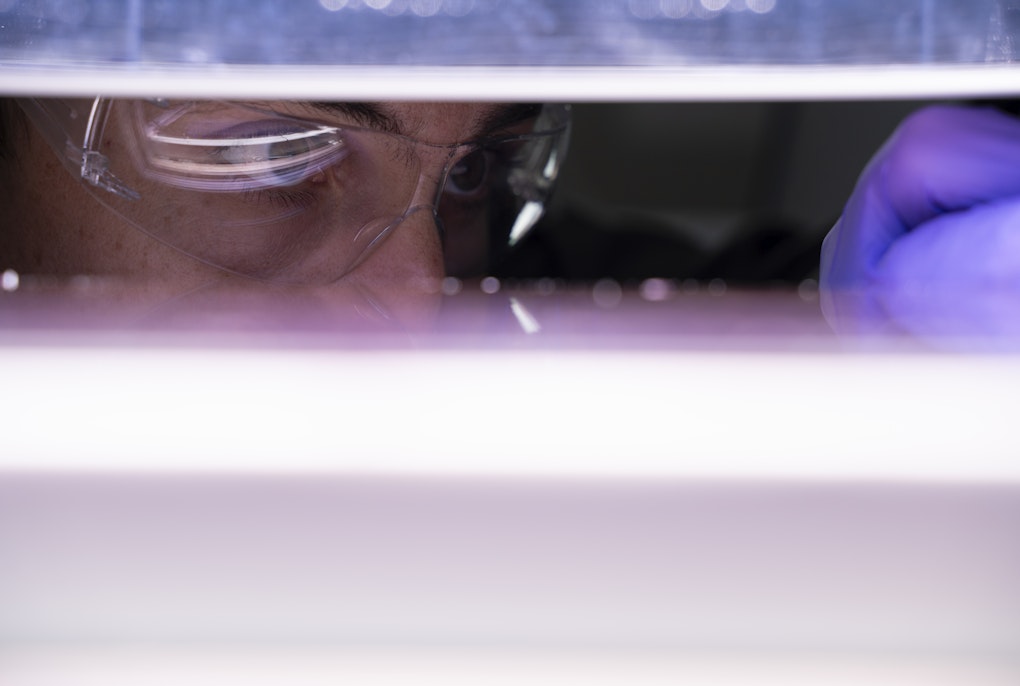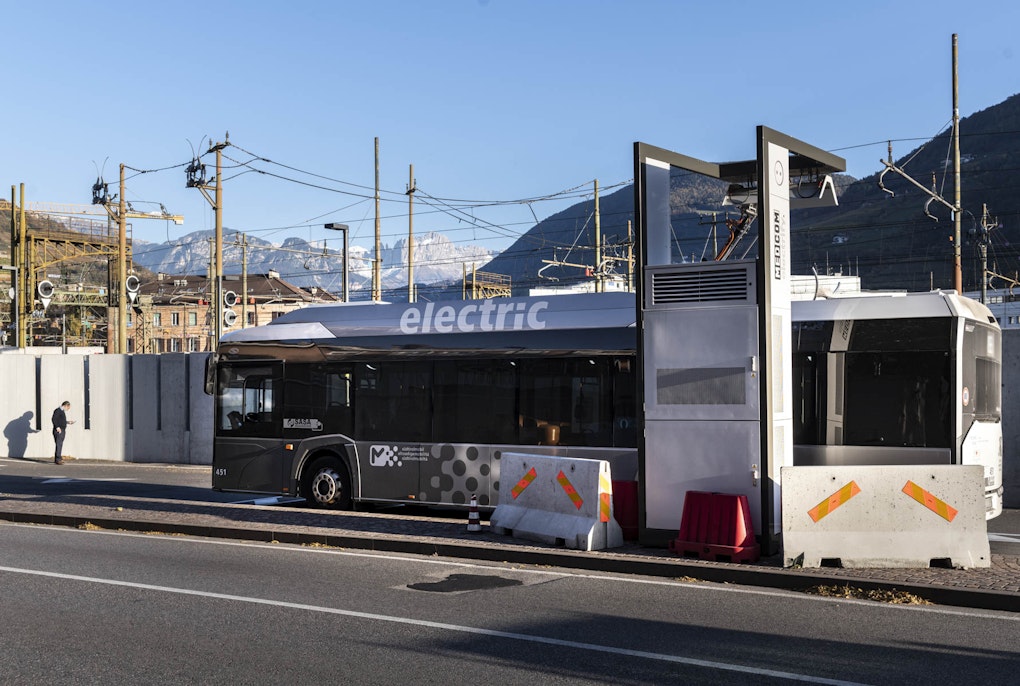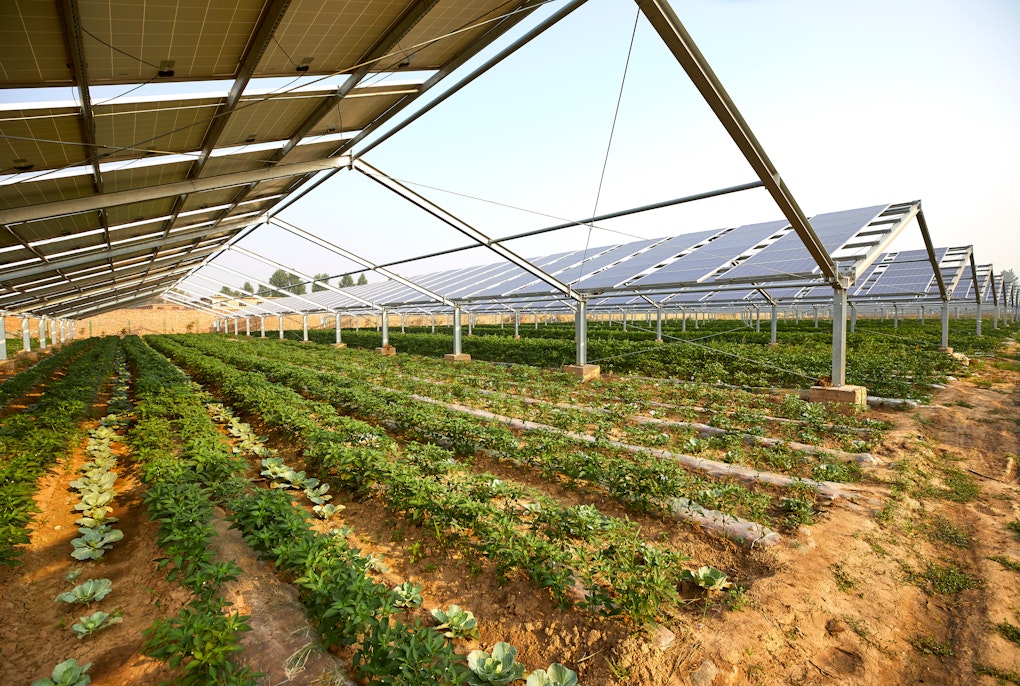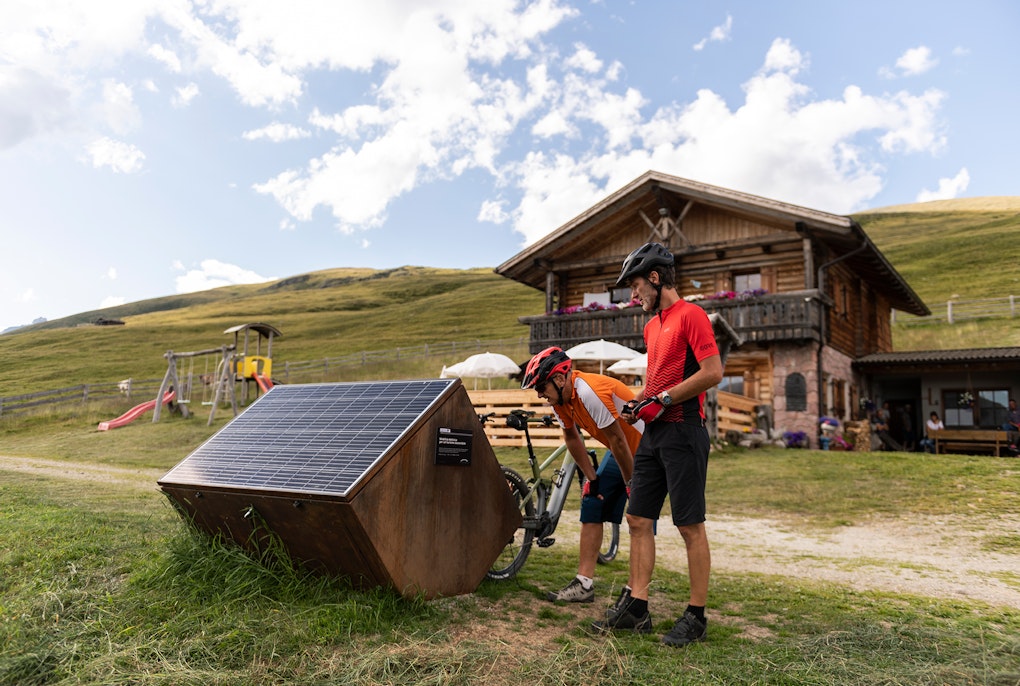magazine_ Interview
"Knowing the facts does not necessarily lead to a change in behavior"
Conversations between disciplines: interview with Eurac Resarch President Roland Psenner and renewable energy expert Wolfram Sparber.
Eurac Research President Roland Psenner fears that when it comes to the power of facts, science sometimes deludes itself: The feeling of being among the losers can make people rebel even against indisputably correct measures, whether they concern the corona crisis or climate change. Wolfram Sparber, an expert on renewable energy, also sees a lack of social acceptance as the biggest brake on the energy transition. Both are convinced that affluent regions should set a good example in climate protection, but all too often the attitude of "Not in my backyard!” prevails in South Tyrol.
On a personal note: what are your everyday contributions to climate protection?
Roland Psenner: I live in Innsbruck, am in Bozen-Bolzano four days a week: I travel from one city to the other by train. In Bozen-Bolzano I travel by bike, and at Eurac Research I have been only eating vegan for some time - not only for lack of alternatives! After a ten-month wait, I finally have an emission-free car. Electric cars also pollute the environment, so I'm not consistent on this point. I have also ordered a pellet stove to substitute my gas heating. Switching to a heat pump is a wishful thinking at the moment, since several parties live in the house and they have to agree to it. As a paleoecologist, I am aware of how quickly the climate has changed in the past decades. There are 80 percent more greenhouse gases in the earth's atmosphere today than before the industrial revolution. In terms of atmospheric physics, we have thus beamed ourselves back into the past at least 3.6 million years.
Wolfram Sparber: I'm not quite as consistent as Mr. Psenner when it comes to nutrition, but I had already converted my mobility to zero emissions about a year and a half ago. Unfortunately, I haven't been able to change my heating situation because I live in a big condominium - we're in the middle of a difficult discussion. I am trying to neutralize my flights, which I take much less often now. But my main contribution, I think, is that I spend more or less ten hours a day on the topics of renewable energy and energy efficiency and try to communicate not only the message of the necessity, but especially the opportunities, of the energy turnaround.
What must South Tyrol focus on in order to achieve climate neutrality as quickly as possible?
Sparber: It is important to start at every point where fossil fuel is burned. Every gas heating system, every internal combustion engine, whether in vehicles, in district heating plants, or in industry, will have to be replaced in the coming years. The solutions will vary on a case-by-case basis, but overall, we need a mix of energy efficiency and lots of renewable energy. There is a shift towards electrification, which means that electricity will do more in the future than it does today: it will power our vehicles to a large extent, it will also power industrial processes, it will heat many of our buildings via heat pumps. So, we will need a lot of renewable electricity. The good news is that many of these renewables are now the cheapest sources of electricity. In photovoltaics, for example, costs have dropped by over 80 percent in the last twenty years.
"We cannot continue to create wealth by exploiting the planet."
Roland Psenner
Eurac Research has had a sustainability manager for about a year. Is there a concrete target for when the research center should be climate neutral?
Psenner: We should achieve that by 2030. We can't just draw up climate reports and plans, we also have to set a good example. Just as the industrialized countries should be an example for the rest of the world. We also have to accommodate the not-so-developed countries, allow them to develop as well - but preferably not by copying our model, we simply cannot continue to create wealth by exploiting the planet. 2030 is certainly going to be a turning point; if we don't get our act together by then, the consequences will be dramatic and violent. We still have eight years.
Sparber: Eurac Research must do everything it can to stop using fossil fuels. That applies to heating the buildings, our electricity sources and extends to business trips too. We are working on all of these areas, but there will be no immediate solutions, partly because we are not owners of the buildings. Unfortunately, the NIMBY (not in my backyard) effect is also evident here: climate protection measures are wonderful if they are not implemented around the corner from me. In South Tyrol, one very often encounters this attitude, whether it is about a wind farm at the Brenner-Brennero Pass or about the combination of agricultural use and photovoltaics. High sensitivity for our landscape is certainly important, but with a general "no" we will not achieve the energy turnaround.
"Many people still see the phase-out of fossil fuels primarily as a sacrifice. The fact that this also offers many economic opportunities is not communicated enough."
Wolfram Sparber
So, the biggest challenges lie not in technical feasibility or cost, but in changing social behavior?
Sparber: From a technical point of view a great deal is now possible. We can't switch to 100 percent non-fossil energy overnight, but we can cover some ground if society goes along with it. Many people still see the phase-out of fossil fuels primarily as a sacrifice. The fact that this also offers many economic opportunities is not communicated enough. If, instead of importing fossil energy, we rely on energy efficiency and renewable energies, we can create added value of hundreds of millions of euros annually, even in a small region like South Tyrol, as one of our studies shows. We should also look at costs comprehensively, not just the purchase, but the entire life cycle of a product. An electric car may cost more to buy, but it costs much less to use than a gasoline or diesel vehicle. If I insulate my house, that's up-front financing that pays off later. And it creates added value in the country because it provides work for craftsmen living here. Of course, all this touches on social issues, because we have to break up systems that have grown and functioned over decades. And like any change, it’s difficult on the one hand, but on the other holds opportunities. And there will also be losers. To ensure that as few as possible suffer and many benefit, it is important to shape this process proactively.
Psenner: Winners and losers: In my opinion, this is a very crucial point. The extent to which crises affect people depends very much on their social status, as the pandemic clearly demonstrated. Inequality has increased even more, and I think that the protest movements, some with fascist tendencies, arise because people are resistant to changes that might make them worse off. If it is clear from a scientific point of view what needs to be done, but a quarter of the population is still not prepared to do it, then this may be because people see themselves as potential losers. Basically, it's a problem of justice, and if we don't get a grip on that, we won't be able to master the climate crisis either. We scientists are perhaps sometimes deluding ourselves: We think it's enough to know the facts. But that alone does not lead people to change their behavior or their systems.
Timing is another factor of climate change that does not contribute to decisive action: we need to radically reduce CO2 emissions now, but we won't see the effect for another 20 or 30 years.
Sparber: That's precisely why it's important to see the economic opportunities - and to create them. After all, many people think entrepreneurially and get on board when new, promising paths open up. Doing the right thing for the climate also means a better quality of life in the short term in many areas: living comfort is much higher in a renovated building; if there are no cars with combustion engines in our cities, we have less noise, pollutants, and stench.
Psenner: In addition to the time factor, there is also the competition for attention: the pandemic has pushed climate change completely into the background, as has the loss of biodiversity.
The other global environmental crisis ...
Psenner: These crises are closely related; they cannot be considered and solved separately. Especially here in the alpine region, it is very clear how climate change leads to species loss and species displacement. We know the speed at which animal and plant species are disappearing, but most people are not aware that with each species a part of us is also disappearing - a part of our evolutionary heritage, but also of our future. Because preserving biodiversity has very concrete consequences and benefits. Not only for agriculture, but also for medicine: most active medical ingredients come from the plant and animal kingdoms and from microbiology.
One of your institute's projects, Mr. Sparber, is also about biodiversity - green facades and roofs are intended to help cities counteract problems such as heat islands and flooding, while at the same time creating more habitats for animals and plants. How do such nature-based solutions fit in with your technological orientation?
Sparber: They are a nice addition, and I think it is important to think in a versatile way here, to exhaust all possibilities. Greenery is often a solution that has many positive effects, provides cooling, binds fine dust and stores water. Energy and ecological and aesthetic aspects all come together. Green roofs reduce the rooms below overheating, and they can also be combined with technological solutions such as photovoltaics. Of course, this requires more space, but we have that space. If you look at the satellite image of Bozen-Bolzano, you can see that most of the roofs are neither green nor have PV systems, but lie fallow, dead roofs.
Psenner: Of course, such nature-based solutions can only be effective if we reduce emissions at the same time; one cannot just replace one with the other. People often think too briefly here - for example, when experts argue that we simply have to reforest part of our agricultural land because forests remove CO2 from the atmosphere; this would also help biodiversity. I don't think it would make sense, given the ever-increasing world population that needs to be fed, to turn agricultural land back into forests. But it is instructive to look at how these agricultural lands are being used: of the 50 million square kilometers of the Earth's surface where people farm, 40 million are used to produce livestock feed - only 10 million square kilometers are used to grow human food. There is a lot out of balance. I'm not saying that everyone should stop eating meat and the world will be saved - it's not that simple. But we need a change in our way of life.
Sparber: And we need true costs. When you see how cheap meat is compared to other foods, you have to ask yourself the question: is life really worth so little?
How do you feel about the future?
Sparber: I am a moderate optimist. I believe we will get our act together, but there will be consequences. To believe we'll get it right, everything will be all right - that's unrealistic. We have to get our act together very quickly. I think that in two or three generations, we'll look back on this crazy age where we burned masses of coal, oil, and gas. But the question is how many meters the sea level will have risen, how many people will have lost their livelihoods and how much biodiversity will have been lost. It all depends on how quickly we can make the necessary changes.
Psenner: I have dealt with other environmental crises of great magnitude in my career: there was eutrophication of lakes, acid rain, the hole in the ozone layer. The problems were understood and, even if not completely overcome, were contained. There are lessons to be learned from past crises - but it is important to realize that climate change is a problem of a very different dimension. We must do the nearly impossible: limit the warming to 1.5 maximal 2 degrees. We will only succeed if we change, and all adapt to such an extent that as a society we can still live with the change in an environmentally compatible way.
Roland Psenner
Roland Psenner is a limnologist and has also been the president of Eurac Research since 2015. He was professor of limnology and vice rector of the University of Innsbruck. Since his retirement, he has been Vice President of the University Council of the University of Natural Resources and Life Sciences, Vienna. In his scientific career, he has mainly dealt with the effects of environmental pollution and climate change on the ecosystems of alpine lakes. Beyond his field of expertise, he is concerned with the social and cultural development of mountain regions. He loves high mountain lakes, ski tours, books and discussions with smart people.
Wolfram Sparber
Wolfram Sparber studied applied physics and came to solar cells via solid state physics. After several years of applied research at the Fraunhofer Institute for Solar Energy Systems in Freiburg, he returned to South Tyrol in 2004. Since 2005, he has been head of the Institute for Renewable Energy at Eurac Research. He was president of the board of directors of SEL, later chairman of the board at Alperia where he is currently a member of the supervisory board. At the European level, he was Vice President of the Technology and Innovation Platform for Renewable Heating and Cooling Systems for several years. Currently he is vice president of the Association of European Renewable Energy Research Centers. When he's not focused on finding energy solutions, he enjoys spending time with his family and exercising in the mountains.
Knowledge for everybody. 18 open lectures on sustainability
On January 18 at Eurac Research, Roland Psenner will give an open lecture as part of the Series of Lectures on Sustainability. The theme of the lecture is "High Mountain Lakes. Formation and Transformation due to Climate Change", the event will begin at 6 p.m.
The lecture series is organized by the Alliance of Research and Education for Sustainability in South Tyrol. In the framework of the alliance, several South Tyrolean research institutes joined forces to address important aspects of sustainability and, above all, identify solutions to present and future challenges and issues. Those involved include the Free University of Bozen/Bolzano, Eurac Research, the Academic Theological Studio, the Laimburg Experimentation Center, the Natural Science Museum of South Tyrol, eco-research, the Ökoinstitut, and Fraunhofer Italy. IDM is also a partner. More information is available on the Alliance for Sustainability website.






